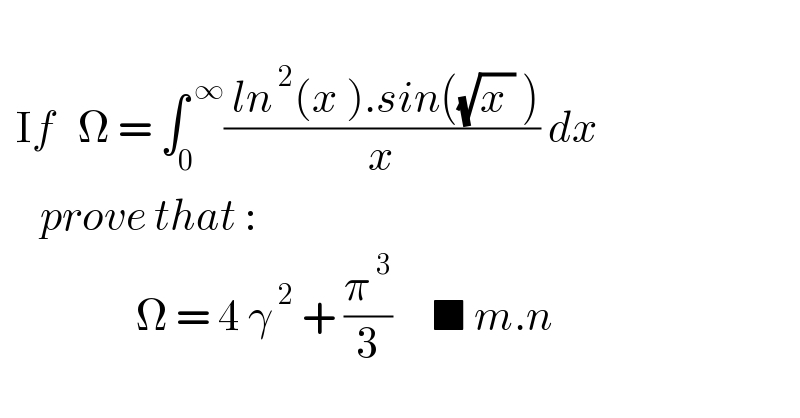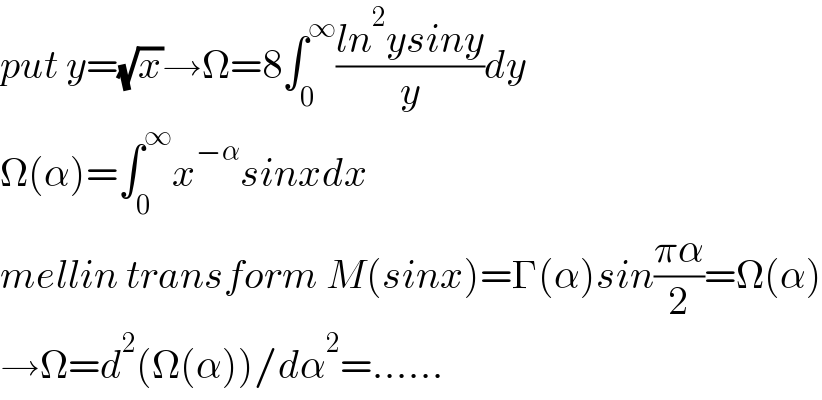
Question and Answers Forum
Question Number 155237 by mnjuly1970 last updated on 27/Sep/21

Answered by phanphuoc last updated on 27/Sep/21

| ||
Question and Answers Forum | ||
Question Number 155237 by mnjuly1970 last updated on 27/Sep/21 | ||
 | ||
Answered by phanphuoc last updated on 27/Sep/21 | ||
 | ||
| ||